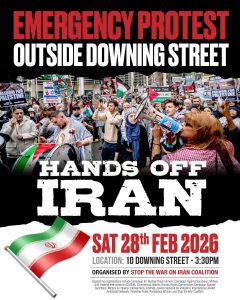The landmark ruling opens the door for broader legal challenges to Britain’s restrictions on pro-Palestine activism
The UK Home Office has lost its attempt to prevent a judicial review of its decision to designate Palestine Action as a terrorist organization, following a Court of Appeal ruling issued on 17 October.
The court dismissed the government’s appeal and confirmed that the case brought by Palestine Action co-founder Huda Ammori will proceed, adding two further grounds of challenge that had previously been denied.
These grounds, according to the judgment, include allegations that the Home Secretary failed to consider relevant information, or relied on irrelevant material, and that she did not follow her own published policy outlining factors to be assessed before proscription.
Calling the ruling a “landmark victory,” Ammori said it represented resistance against “one of the most extreme attacks on civil liberties in recent British history.”
She added that the ban was “authoritarian” and a “dangerous misuse of counter-terror resources,” noting that over 2,000 people have been arrested since the group was outlawed.
Friday’s decision allows the case to proceed to a full hearing on 25 November, marking the first time a proscribed organization under UK counter-terrorism law has been granted a judicial review.
The Home Office had argued that challenges to proscription should be filed through the Proscribed Organisations Appeal Commission, not through judicial review.
But the Court of Appeal upheld an earlier High Court decision by Justice Chamberlain, who found that a judicial review offered a quicker and more effective way to determine the legality of the ban.
Palestine Action, a campaign group known for targeting UK factories and offices tied to Israel’s weapons industry, was officially proscribed as a terrorist organization in July, after parliament voted 385 to 26 in favor of the measure.
The designation made public support or membership of the group a criminal offense punishable by up to 14 years in prison, a decision widely condemned by lawmakers and rights groups as “grotesque,” “chilling,” and an “unprecedented legal overreach.”
Since the ban, dozens of activists have been charged under the Terrorism Act, and hundreds have been detained for acts of protest or solidarity.
Defend Our Juries, a campaign group opposing the proscription, says authorities have weaponized counter-terror powers to silence opposition to Israel’s arms industry.

